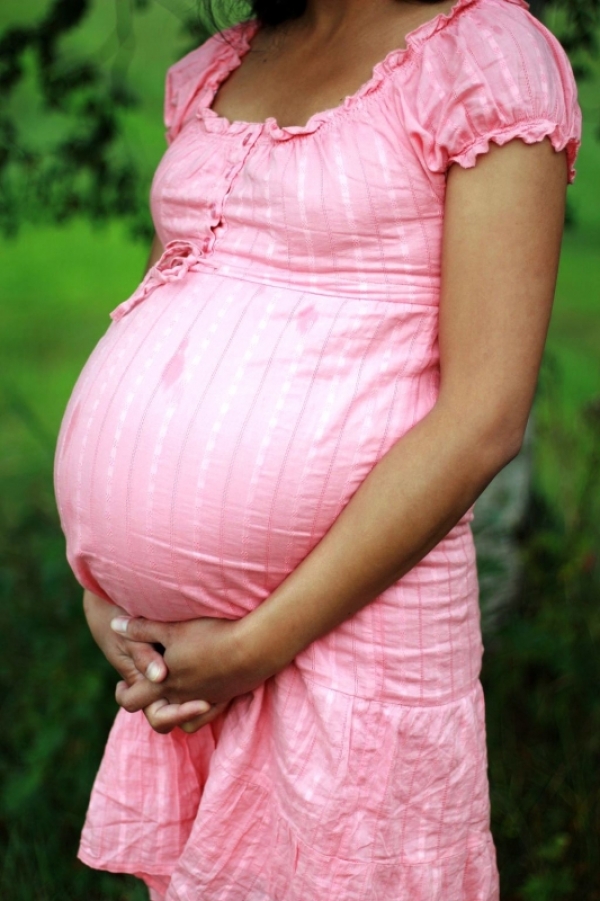
14 February 2025

People born prematurely due to heat stress have a greater risk of neurodevelopmental delays, cognitive impairments, behavioural disorders, and psychiatric conditions, a study found. Photo: Øyvind Holmstad via Wikimedia (CC BY-SA 4.0)
A recent study by Wits University’s Planetary Health Research Division (Wits PHR), published in Nature, has confirmed what scientists have long suspected – rising global temperatures pose a serious threat to maternal and neonatal (newborn) health.
The study, conducted across 66 countries from six continents, found a strong correlation between increased temperatures and adverse pregnancy outcomes. These include pre-term births, low birth weight, stillbirths and gestational disorders.
As anyone who has been through it will tell you, pregnancy places significant strain on the body. Even under normal conditions, pregnant women have a hard time regulating their body temperature. During pregnancy, the cardiovascular system accommodates the growing placenta and foetus, increasing blood volume by 30% to 50%. Since most of this blood flow is directed to the placenta, less blood travels to the skin to release heat. Additionally, hormonal fluctuations further alter a pregnant woman’s thermoregulation.
Prolonged heat exposure is not mere discomfort for pregnant women - it’s a genuine health concern. Studies have found links between increased temperatures and increased risks of hypertension and gestational diabetes. Dehydration is another dangerous consequence. Significant fluid losses due to overheating can disrupt the amniotic fluids needed to nourish the growing foetus.
While there is a relationship between heat exposure and adverse birth outcomes, the biological mechanisms behind these effects remain unclear. To bridge this gap, Wits PHR has launched the Bio-HEAT project. The study includes over 200 women and investigates how heat stress affects pregnancy at a physiological level.
One hypothesis is that heat triggers an inflammatory response that increases the likelihood of preterm birth. Another theory suggests that when a mother overheats, her body demands more oxygen and nutrients, potentially reducing the supply available to the baby and placenta. This could harm brain development, leading to long-term neurological issues.
Another systematic review by Wits PHR in 2024, investigated the long-term consequences of preterm births related to global warming. Spanning from 1913 to 2019, the study found that individuals born preterm due to heat stress had a greater risk of neurodevelopmental delays, lower IQs, cognitive impairments, behavioural disorders, and psychiatric conditions.
Kimberly McAlpine, a Wits PHR researcher, explained that since it was a long-term study, “we could see that these children would grow up to have a higher likelihood of developing hypertension, diabetes, and cardiovascular issues associated with heart attacks and strokes”. McAlpine said the neurodevelopmental issues also affected their socio-economic status later in life. “With decreased learning capacity, individuals couldn’t land good quality jobs,” McAlpine said.
2023 was the hottest year recorded until 2024 surpassed it. Climate change holds very serious consequences for the healthcare sector. While national policy changes at a government level are required to mitigate its effects, at an individual level, it’s important to understand how to manage the health effects of increased temperatures.
In Johannesburg, many of the pregnant women involved in Wits PHR research live in informal settlements, where corrugated iron shacks trap heat and push indoor temperatures above 40°C. Properly insulated community centres and parks with trees offering shade are great places to take refuge when overheating. But as a pregnant woman, it’s hard to be sure that these spaces will be safe.
To address this crisis, interventions must go beyond healthcare. Infrastructure improvements — such as better housing insulation, community cooling centres, and shaded public spaces — are critical. Workplace policies should ensure that pregnant women have access to adequate cooling and hydration. Training health workers to educate pregnant women on managing heat exposure could also make a significant difference, particularly for those with pre-existing conditions like hypertension or HIV.
Although climate change is a global issue, its effects are not evenly distributed, with those at the bottom of the socio-economic hierarchy experiencing the worst of it. Africa experiences the highest global rates of maternal and newborn mortality, with pregnant women in poorer areas more likely to experience the risks associated with increased exposure to extreme heat, due to limited access to maternal healthcare.
Matthew Chersich, a South African expert on climate and maternal health, has urged that “formulating, testing, costing, and scaling up solutions to protect pregnant women against high ambient temperatures is a major public health priority”.
“Women in Africa have made a negligible contribution to global carbon emissions, yet may be among the populations most affected by climate change and have the fewest resources to cope, especially while pregnant,” Chersich says.